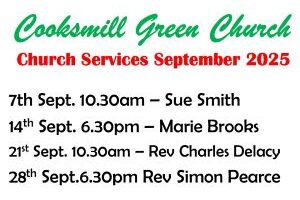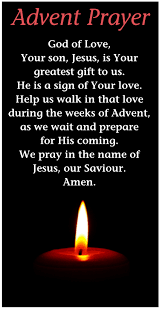Thought for the Month March 2025
Feel like giving up?
In a few days we will be into our seasonal observance of Lent, hopefully each making our own commemorative journey towards that most precious moment in time, when a sacrifice, borne out of love, was given to save the world, a life freely given in suffering to save each of us, a pivotal moment in time from which we now choose to call ourselves Christians.
So, with that in mind what have you decided to do for Lent in recognition of such a significant moment?
The Church offers us the three pillars of Lenten observance which are, abstinence, prayer, and alms giving, each designed for the purpose of giving focus on our relationship with God and on His presence in the world around us. In my own experience of Lenten tradition, the most commonly observed of the pillars appears to be that of abstinence, where people talk of giving something up, usually depriving themselves of personal treats or indulgent cravings, entering into a kind of pious Dry January event. To go without such superficial joys for six weeks is, I’m sure, both challenging and a great mark of personal endurance for the individual, but at the end of doing so, surely the question must always be, has it brought you any sense of being closer to God, to that special moment in time already mentioned, or is it really just a demonstration of one’s own fortitude and resolve in facing down your guilty desires? I suppose the answer is to be found in the honest reflection of your achievement that comes with Easter Sunday, because reflection is a very important part of the observance process, as it provides meaningful spiritual value as to what it is that you have actually achieved, not just for the preceding six weeks but also something to keep you going for all the weeks that follow and beyond, otherwise why do it?
If you fancy a change from abstinence then of course there is always the giving of alms or prayer, but of course it can also be anything else that achieves the same spiritual outcome of nurturing your faith, of reinforcing your identify as a Christian, of having that inner sense of knowing that you are loved and of how to love another, and there are no rules on how you must do this in Lent, only tradition, which makes it seem like there are.
During Advent, which was not that long ago, I chose to be part of our church initiative to bring people of faith together in small groups, meeting in their own homes to simply be together in fellowship, also to pray, and most importantly, to talk about God in their life. The first thing to point out is that every effort was made not to call this meeting a ‘course’ or to structure it like one, because the moment you do that you run the risk of imposing formality on how things should happen, it restricts spontaneity within the group and can inhibit a freedom of expression due to its content design, in essence it should just simply be about people with faith, being themselves in the moment, and that is exactly what it was. Sitting in a group of four, listening to others offer up their honest thoughts and feelings about God, about the meaning of faith and spirituality, revealing all their doubts and their certainties, was truly a wonderful personal experience for me, and none of it needed a prescribed agenda for it to happen. It was the first time I have ever had an open and honest conversation about faith, where nothing was out of bounds, everything said was accepted by those listening, it wasn’t put out there for anyone to challenge, but to just listen to, and so often they were the same thoughts and feelings of others sitting right there. It soon became clear that none of us wanted to be the owner of a ‘blind faith’ but instead wanted one that was as honest and relevant as it could be, even if that might leave us with questions that could not be completely answered and also to be reassured that it was normal to feel this way. Talking and thinking in this way about faith, somehow made sense of the words we often hear in church “a faith beyond all understanding”, a statement that requires us Christians to maintain a level of belief or trust in something that surpasses human comprehension, and yet I hardly ever hear anyone openly say that this is a difficult thing to do?
Anyway, the upshot of this experience is that we are being encouraged to do this initiative again for Lent and I for one can endorse this as an adventurous alternative to more traditional methods. Yes, you can of course travel through Lent by yourself and in whatever manner of your liking, and if it achieves what you want then that is a journey well-travelled, I only offer up that perhaps on this occasion you share that journey with a small group of others, it really does enrich the experience, it reveals God through the thoughts and feelings of others in a way you may not have yet witnessed and of course your own spiritual encounters have the ability to show a different way to faith for others too. Throw in friendship, fellowship and a nice cup of tea and I for one could not wait for the next session, something to consider if simplicity is your thing.
Well, as we approach the start of this year’s Lenten journey, I truly hope that however you have decided to participate and in whatever observance method you have chosen, that you will find it both worthwhile and fulfilling in its purpose. If you are not getting involved or are abstaining due to Lenten fatigue, then there is still time to consider a different approach, especially if traditional methods are leaving you feeling uninspired, there are others out there who feel the same I’m sure, so go find a way that motivates you and one that brings you to an Easter reflection with some benefit, no matter how small, designed to bring you a little closer to Christ and the purpose of His Passion, a sacrifice borne of eternal love for us all, a special moment in time. Amen
Loving God,
During the sacred season of Lent, bring me closer to you.
Prepare a place in my home and heart for silence and solitude,
so that I may discover the joy of prayer and contemplation.
Help me to fast from those things that threaten the well-being of
body and soul and remind me of the joy of simplicity.
Enlarge my heart so that I give to those in need and in so doing so
discover the joy of caring, love and generosity.
May this Lenten season be filled with opportunity to strengthen
both my love and faith in you.
Amen











